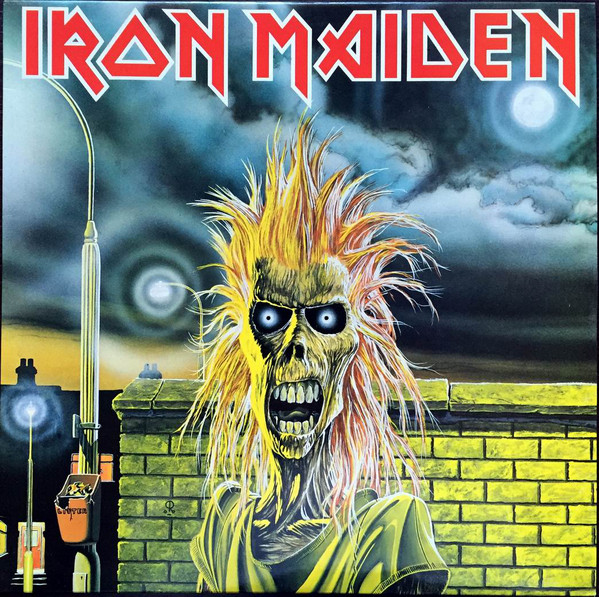You know, I didn’t expect to become an Iron Maiden fan. At first, a compilation of their best work was all I needed. Hell, it didn’t even leave that good an impression, so for a few years I would return to Edward the Great sporadically, occasionally scratching my head as to why the band were held in such high esteem.
The turning point for me happened in early 2018, when I stumbled across the first of a series of official documentaries about Iron Maiden during one of my many sleepless nights ahead of the birth of my daughter. Pleasingly these documentaries were uploaded on to Iron Maiden’s official YouTube channel, thus demonstrating the band and their management’s understanding of something that few in the music industry ever truly grasp – if you release something for free, it will encourage goodwill towards the act, increase interest in those (like myself) who were undecided about the act and thus garner greater sales over a longer period. It’s one thing when a smart arse cottage-industry cult act like They Might Be Giants do it, but when a huge, globally successful major label mega-budget band like Iron Maiden do it, the benefits are exponentially more. Trust me, acts giving back to their fans, regardless of their stature, is only ever a good thing.
Thus I find myself reviewing Iron Maiden’s self titled debut from 1980. The only one of their 1980s albums not produced by hard rock studio veteran Martin Birch, and one of only two with original vocalist Paul Di’Anno, it’s easily their rawest sounding release, and sonically much more in tune with the Punk movement that the band apparently detested than anything else they released, which may go some way to explain why band leader Steve Harris has been so ready to criticise it since.
Harris’s misgivings aside, Iron Maiden was a much needed shot in the arm for a New Wave of British Heavy Metal, which until that point seemed like it was only ever going to be an underground phenomenon. Di’anno’s unique vocals, along with a dynamic sound and a devoted fan base ensured that the album went top five in the charts. It’s still one of Iron Maiden’s most vital and vibrant sounding albums, and with early classics like “Running Free”, “Prowler” and the album’s title track, it’ one of the Iron Maiden albums that you really shouldn’t skip, even if on balance you do prefer Dickinson’s vocals.
On the official documentaries about Iron Maiden’s history, much is made of the fact that in the band’s early days, their line up was pretty fluid. This would remain the case over the course of their first few albums as well, with Iron Maiden being the only one of their albums to feature the guitar work of Dennis Stratton. While forging a career in Heavy Metal is no easy task when your name is Dennis, the main reason for his departure seems to be the fact that he wanted to push the band towards more lushly produced and commercial sounds. Harris has gone on record saying that if they had followed this path the band would have ended up sounding dangerously close to Queen, however, to my ears at least, there are distinct echoes of Moontan era Golden Earring, which is no bad thing at all, as it results in an Iron Maiden which sounds like no other.
Usually when I am exploring the output of an unfamiliar act with a weighty discography, I preference is to go chronologically through their albums, and the reason I didn’t with Iron Maiden was that I simply didn’t expect them to appeal to me as much as they did, that and the fact that I was picking up their albums as and a when I saw them cheaply. Approaching The Irons chronologically is probably the best way to go though, and with this album you really do get off to a flying start. Be warned on the 1998 reissue though – not only is “Sanctuary”, a track that was on the American version of Iron Maiden, but not the UK original, crowbarred into the first half of the album, it also features a shonky computer rendering of the original artwork that just doesn’t look right at all!














No Comment